| |
ISAAH Sponsors
Aquatic Animal Health Organizations - Academic Institutions - Other Vital Sponsors |
| |
|
| |
Aquatic Animal Health Organizations |
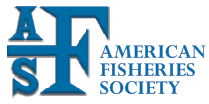 |
American Fisheries Society – Fish Health Section
The Fish Health Section (FHS) is one of the oldest and most international sections of the American Fisheries Society. The FHS was formed in 1972 to give fish biologists, diagnosticians, researchers, aquaculturists, veterinarians, administrators, and others involved in fish health, an organization for communication and interaction. Members are informed about updates on fish health news, meetings, workshops, employment, and helpful resources, via the Fish Health Update Listserve. The FHS produces the Bluebook – Suggested Procedures for the Detection and Identification of Certain Finfish and Shellfish Pathogens. The Section also sponsors the Journal of Aquatic Animal Health, and organizes annual meetings and special workshops. In addition, the FHS/AFS offers credentials through certification as Aquatic Animal Health Inspectors or Fish Pathologists. The AFS Fish Health Section is the official professional society host of the ISAAH symposia.
http://fisheries.org/units/fhs
|
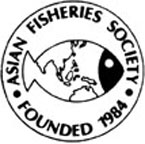 |
Asian Fisheries Society – Fish Health Section
The Fish Health Section of the Asian Fisheries Society was founded in 1989 to (a) promote effective interaction and cooperation among persons involved in aquatic animal research, (b) to encourage and promote investigation and advances in knowledge of aquatic animal health, (c) to focus attention on aquatic animal health problems by disseminating technical and other information on all aspects of aquatic animal health, and (d) promote the proper implementation of effective aquatic animal health protection practices in the region. The FHS, holds on a regular basis, a triennial “Symposium on Diseases in Asian Aquaculture” (DAA). The Triennial General Meeting (TGM) of the FHS is held in conjunction with the DAA. The Section also co-organizes scientific symposia and workshops on topics of interest to the membership independently, or in conjunction with the Asian Fisheries Society, or any other organization with mutual interests in aquatic animal health.
http://afs-fhs.seafdec.org.ph
|
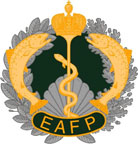 |
European Association of Fish Pathologists
The aims of the European Association of Fish Pathologists (EAFP) are to promote the exchange of knowledge and co-ordination of research related to fish and shellfish pathology. The EAFP has more than 1000 members from 61 countries. The Association produces 6 issues a year of the Bulletin of the EAFP, which is a means of communicating news via short refereed papers, especially short papers which merit rapid publication by virtue of their interest to the field fish pathology. The EAFP also communicates information via its website which includes a message board, and links to other organizations concerned with fish health. Conferences are held biannually, with the next meeting taking place September 12 – 16 2011, in Split, Croatia.
http://eafp.org
|
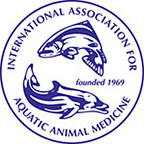 |
International Association for Aquatic Animal Medicine
The International Association for Aquatic Animal Medicine (IAAAM) is an organization of individuals who are professionally interested in, and devote a significant amount of time to, the practice of aquatic animal medicine, teaching and research in aquatic animal medicine, or the husbandry and management of aquatic animals. Benefits of membership include receiving the IAAAM newsletter published three times a year, conference proceedings, and the membership directory. Conferences are held annually, typically with a rotating schedule of 4 – 5 years in the USA or Canada, and then a year in an international location, which most recently has been in Europe. The IAAAM supports students, via special web pages, student workshops at the annual meeting, and a student liason committee. The 2011 meeting will be held in May 7 – 11, in Nevada, USA.
http://iaaam.org
|
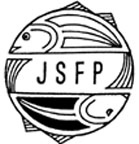 |
Japanese Society of Fish Pathology
The Japanese Society of Fish Pathology (formerly The Japan Research Group of Fish Pathology) was founded in 1966. The society aims to advance the study of fish pathology and the dissemination of knowledge specific to fish and shellfish diseases. This is promoted through its annual meetings and symposia, supported by the publication of its internationally renowned official society journal "Fish Pathology". This journal is the oldest of its kind, and continues to provide many significant and important data on fish diseases of the world. The activities of the society cover a wide spectrum of basic and applied fish pathology, providing privileged information to fish pathologists worldwide. The Society also holds national symposia on a regular basis, dealing with topics of fish and shellfish pathology, including: 1999, New diseases of shellfishes (Sendai); 2001, Development of fish vaccines in Japan (Tokyo); and in 2008, The 5th International Symposium of the Japanese Society for Fish Pathology.
http://fish-pathology.com
|
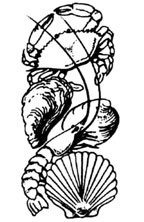 |
The National Shellfisheries Association
The National Shellfisheries Association (NSA) is an international organization of scientists, management officials, and members of industry, that is deeply concerned and dedicated to the formulation of ideas and promotion of knowledge pertinent to the biology, ecology, production, economics and management of shellfish resources. The Association has a membership of more than 700 from all parts of the USA, Canada and 32 other nations; the Association strongly encourages graduate students’ membership and participation. The NSA sponsors an annual scientific conference, publishes the peer-reviewed Journal of Shellfish Research, produces a quarterly newsletter, and interacts with other associations and industry. The 103rd Annual Meeting of the NSA will take place March 27 – 31 2011, in Baltimore, Maryland, USA.
http://shellfish.org
|
| |
TOP
|
| |
Academic Institutions |
 |
Department of Molecular and Comparative Pathobiology, Johns Hopkins University School of Medicine
The Department of Molecular and Comparative Pathobiology provides leadership in biomedical research on animal and human diseases, and assists with the health and humane care of research animals within the Johns Hopkins Medical Institution. The facilities include 12,000 square feet of state-of-the-art laboratories, office and library space; rodent phenotyping facility; a modern vivarium with robotics housing up to 140,000 rodents; comprehensive surgery and diagnostic suites; and one of the best medical schools and hospitals. Educational opportunities include training in anatomic pathology or laboratory animal medicine leading to ACVP or ACLAM board certification, multiple Ph.D. programs emphasizing mechanisms of disease, a MPH at the world renowned Bloomberg School of Public Health, and summer pathology internships after a students second year of veterinary school or a clinical externship in the senior year. Diagnostic cases handled by the Department include those submitted by The National Aquarium in Baltimore.
http://www.hopkinsmedicine.org/mcp |

|
College of Public Health and Health Professions, University of Florida
The mission of the University of Florida College of Public Health and Health Professions is to preserve, promote and improve the health and well-being of populations, communities and individuals. To fulfill this mission, we foster collaborations among public health and the health professions in education, research and service.
The college is composed of eight departments: behavioral science and community health; clinical and health psychology; environmental and global health; epidemiology and biostatistics; health services research, management and policy; occupational therapy; physical therapy; and speech, language and hearing sciences. The college offers one undergraduate degree, six master’s degrees, five Ph.D. degrees and two professional degree programs. With more than $18 million in research grants, the college consistently ranks first or second in NIH funding among college of health professions.
In 2009, the college launched the department of environmental and global health where faculty members educate public health students and conduct research in areas such as toxicology, chemical and exposure risk assessment, air pollution, veterinary public health, water biology and molecular biology. Department faculty work with researchers in the university’s Center for Environmental and Human Toxicology, the Emerging Pathogens Institute, the Aquatic Pathobiology Laboratory and the Whitney Laboratory for Marine Bioscience. UF has extensive resources focused on the environment and the department of environmental and global health is in a unique position to bring these resources together to improve human and environmental health.
For more information on the UF College of Public Health and Health Professions and its programs, please visit
http://www.phhp.ufl.edu |
| |
Department of Environmental and Global Health, College of Public Health and Health Professions, University of Florida
The Department of Environmental and Global Health is a hub of collaboration among University of Florida scientists who are interested in the effects of factors in the environment on both human and environmental health. Factors in the air, soil, and water that threaten health are rarely contained within artificially drawn political borders. Thus environmental health is global and it is our goal to explore and examine its global dimensions fully.
The University of Florida has extensive resources to address various aspects of the environmental health. The Department of Environmental and Global Health uniquely positioned to bring these resources together with focus human health. In collaboration with the UF Emerging Pathogens Institute, the Department works to incorporate mathematical modeling approaches to predict disease risk, assess of environment/gene interactions at a community level, evaluate the health impact of anthropogenic environmental change, including global climate change, and develop policy responses to minimize risk from emerging and re-emerging biological threats. The Department supports graduate-level training through the College’s Master of Public Health degree program, as well a doctoral program.
http://egh.phhp.ufl.edu |
| |
Aquatic Pathobiology Laboratory, University of Florida
The Aquatic Pathobiology Laboratory is a unique, state of the art research and teaching facility at the University of Florida supported by the Emerging Pathogens Institute, the College of Public Health and Health Professions, the College of Veterinary Medicine, and IFAS, the Institute for Food and Agricultural Sciences. Under the direction Dr. Andrew Kane, the laboratory serves as a shared resource for faculty and students with focus in the areas of aquatic toxicology, aquatic pathology, and ecological studies that examine the relationships between aquatic animal health, human health, and environmental stress. The laboratory collaboratively partners with the Center for Environmental and Human Toxicology and the University-wide Aquatic Animal Health Program to support multidisciplinary collaborations throughout the University of Florida community.
http://aquaticpath.phhp.ufl.edu |
| |
University of Florida – Office of Research
As one of the nation's most comprehensive research institutions, the University of Florida is a leader in research at the boundaries of science. With 20 colleges and schools on a single campus, plus centers throughout the state and around the world, UF has unprecedented resources to explore the frontiers of science and environmental health. Among the exciting interdisciplinary initiatives that the University of Florida is currently pursuing are emerging pathogens, nanotechnology, genetics and regenerative health.
http://research.ufl.edu |
| |
Emerging Pathogens Institute, University of Florida
We live in a world of constant change, with perhaps the greatest changes occurring unnoticed to the human eye, within the burgeoning microbial microcosm. Not all microbes pose dangers to humans, plants and wildlife, but some do. When the University of Florida chose to create the Emerging Pathogens Institute, it aligned existing campus resources to leap to the forefront of research on infectious agents that challenge our state and world. Newspapers are full of stories on diseases with exotic names such as bird flu, E. coli O157:H7, West Nile virus and, closer to home in Florida, citrus greening. Each embodies a potential threat to citizens, crops and wildlife.
There are others we do not typically hear about, such as dengue fever, chikingunya and blue tongue, together with classic and well-known diseases such as cholera, plague and tuberculosis, which represent major threats. Compounding these concerns is the ongoing rise of antibiotic resistance, which renders useless many standard therapeutic approaches. Florida is particularly vulnerable to new infectious agents on several fronts. The subtropical climate is conducive to growth and spread of microorganisms. And Florida is a major entry point for people and products to the United States. This context spells out an obvious need to create an institutional framework with the ability to anticipate, and respond, when new diseases emerge or old diseases re-emerge in new places or with new characteristics.
At EPI, we seek to build this framework, aligning the best minds and best science to create a strong, interdisciplinary institute with the ability to understand, predict and control infectious threats. This requires collaboration across disciplines and scales, from infectious disease and pulmonary specialists to microbiologists; from human, animal and plant pathologists to entomologists; from mathematical modelers to epidemiologists and evolutionary geneticists. It also requires a global vision: microorganisms do not respect state or national boundaries (no passports are required for their movement), and only by understanding the global picture can we anticipate and prevent problems in Florida and other regions susceptible to their unique risks.
http://epi.ufl.edu |
 |
College of Veterinary Medicine, Aquatic Animal Health Program, University of Florida
The UF Aquatic Animal Health Program provides sustainable, state of the art training, education, clinical, diagnostic and research support for aquatic animals, both wild and under the care of man. We work in partnership with other University of Florida programs, private groups, oceanaria, industry, researchers, local, state and federal stakeholders as well as other educational institutions.
http://www.vetmed.ufl.edu/extension/aquatic |
| |
TOP
|
| |
Other Vital Sponsors |
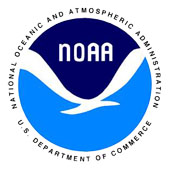 |
National Oceanic and Atmospheric Administration, National Marine Fisheries Service - Office of Protected Resources
The Office of Protected Resources (OPR) is a headquarters program office of NOAA's National Marine Fisheries Service (NOAA Fisheries Service, or NMFS), under the U.S. Department of Commerce, with responsibility for protecting marine mammals and endangered marine life.
NOAA's Office of Protected Resources works to conserve, protect, and recover species under the Endangered Species Act (ESA) and the Marine Mammal Protection Act (MMPA) in conjunction with our Regional Offices, Science Centers, and various partners.
http://www.nmfs.noaa.gov/ |
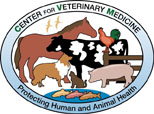 |
US Food and Drug Administration - Center for Veterinary Medicine
Aquaculture is becoming an increasingly important source of fish available for human consumption. As the number of aquaculture facilities grows, so does the need to develop safe and effective drugs for treating fish diseases. CVM's Office of New Drug Evaluation is working with various government agencies and aquaculture associations to increase the number of safe and effective drugs that can be used by the aquaculture industry.
The growth of the US aquaculture industry has required the development of safe and effective drugs for treating fish diseases, as well as increased regulatory surveillance of aquaculture products. In response to these needs, the FDA's Center for Veterinary Medicine, Office of Research, conducts aquaculture research in a state-of-the-art facility. The primary research objectives are designed to assist the Food and Drug Administration in making sure that fish derived from the aquaculture production environments are safe for human consumption.
http://www.fda.gov/AnimalVeterinary/ |
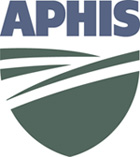 |
U.S. Department of Agriculture - Animal and Plant Health Inspection Service (APHIS)
-Protects and improves the health and welfare of U.S. animals and ensures the safey of animal products and veterinary biologics.
-Safeguards agriculture and the environment against plant health risks associated with pests, diseases and invasive and harmful weeds.
-Manages and resolves human-wildlife conflicts to create a balance where people and wildlife can coexist peacefully.
-Provides animal and plant health expertise to facilitate safe agricultural trade around the world.
-Coordinates emergency response efforts that secure the health and value of U.S. agricultural, natural and other resources when disaster strikes.
http://www.aphis.usda.gov |
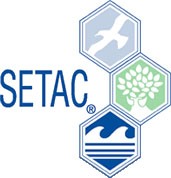 |
Society of Environmental Toxicology and Chemistry (SETAC)
SETAC is a nonprofit, worldwide professional society comprised of individuals and nstitutions engaged in:
• the study, analysis, and solution of environmental problems
• the management and regulation of natural resources
• environmental education
• research and development
SETAC's mission is to support the development of principles and practices for protection, nhancement and management of sustainable environmental quality and ecosystem integrity.
SETAC promotes the advancement and application of scientific research related to contaminants and other stressors in the environment, education in the environmental sciences, and the use of science in environmental policy and decision-making. |
 |
Florida Aquarium
The Florida Aquarium is a non-profit environmental organization whose mission is to entertain, educate and inspire stewardship about our natural environment.
http://flaquarium.org |
 |
Novartis Animal Health
Every ocean. Every fish. At Novartis Animal Health, we have one purpose: to help fish farmers around the world improve the health and quality of their stocks. We know that the productivity of a farm is a reflection of the health of each individual fish. We work to ensure that every fish, wherever it is raised, faces fewer barriers to healthy growth so fish farmers can achieve higher production and healthier returns. You will see this sense of purpose in the products we develop. You will see it in the way we support our products to ensure maximum effectiveness. Aquaculture is a priority at Novartis Animal Health. And our focus is clear: do what it takes to keep your fish healthy.
http://www.ah.novartis.com/aqua/en/index.shtml |
 |
Western Chemical – Aquatic Life Sciences, Ferndale, WA
Western Chemical is the US component of the Aquatic Life Sciences (ALS) group of companies, and is the leading supplier of approved drugs and disinfectants to fish culturists in the US. Our veterinarians’ experience with a broad range of fish culture identified the need for products in: reproduction management, parasite control, disease treatment, disease prevention, biosecurity and vaccination. Today’s ALS product lineup demonstrates our progress in meeting the needs in all of those categories. With these products, fish culturists can meet growing demands for cost-efficient production of safe, quality food products, ornamental fish, healthy and consistent research fish and stock enhancement fish. Western and ALS have several experienced fish health professionals including Jim Brackett, DVM, Hugh Mitchell, DVM, and Grace Karreman, VMD. Jim is VP focusing on international market needs and technical development. Hugh heads up vaccine development and production, and Grace is VP for veterinary and regulatory affairs. Dr. Karreman’s expertise in aquaculture have contributed to Canada’s Health of Animals Act Regulations and Reportable Disease Regulations to support the Domestic Disease Control Program for NAAHP.
http://www.wchemical.com |
 |
McRoberts Sales Company, Incorporated, Ruskin FL
McRoberts Sales is a licensed wholesale distributor of frozen seafood, specializing in supplying whole round fish, shrimp, and shellfish for the specific dietary needs of Zoo and Aquarium Animals. With over 40 years of experience in the seafood industry, we pride ourselves on being your source for #1 quality, fit for human consumption seafood. With multiple freezer locations nationwide, we have the resources to help your facility with any size order, anywhere in the world. Utilizing common carriers and cargo vessels, we deliver wholesome quality seafood products for your priceless animals.
http://www.mcrobertsales.com |
 |
Intervet / Schering-Plough Animal Health
Intervet/Schering-Plough Animal Health, based in Boxmeer, the Netherlands, is focused on the research, development, manufacturing and marketing of animal health products. The company offers customers one of the broadest, most innovative animal health portfolios, spanning products to support performance and to prevent, treat and control disease in all major farm and companion animal species. In aquaculture, Intervet/Schering-Plough is the world’s largest developer and marketer of pharmaceuticals and vaccines. Major products include the parasiticide SLICE® (emamectin benzoate), as well as the antibiotic AQUAFLOR® (florfenicol) and the vaccines AQUAVAC® and NORVAX®.
http://aqua.intervet.com |
 |
Histology Tech Services, Gainesville, FL
Histology Tech Services (HTS) specializes in meeting its clients’ histology and histopathology needs. Whether routine or exotic aquatic tissue submissions HTS strives to provide timely and personalized service for each client request. With every tissue submitted, from routine processing to intricate immunohistochemistry procedures, HTS maintains its standards of excellence on every slide sent to its clients.
http://www.histologytechservices.com |
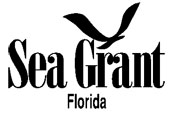 |
Florida Sea Grant
Florida Sea Grant uses academic research, education and extension to create a sustainable coastal economy and environment. We are a partnership between the Florida Board of Education, the National Oceanic and Atmospheric Administration and Florida's citizens, industries and governments.
http://www.flseagrant.org |
 |
Disney Animal Programs and Environmental Initiatives
|
| |
|



















